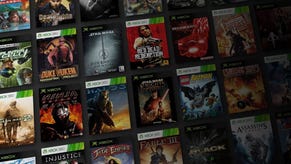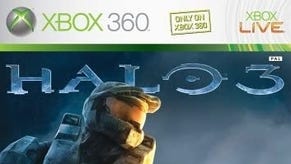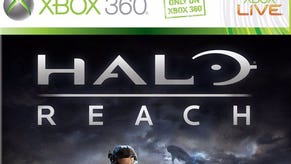Just for the record?
Analysing Halo's launch.
The benefits of this are obvious enough: first, it allows the launch to be heralded as a unique 'event' in the media (and, if brought in line with the US, a 'global moment'); second, it provides extra time at retail, all of which goes towards the eventual weekly total.
Dorian Bloch, chief number cruncher at GfK-ChartTrack, says this tactic was rare before 2008, but that subsequently there's been "between 10 and 15 games off the top of my head" that have gone early.
We know, thanks to Bloch and his magic gaming abacus, that Halo: Reach sold an estimated 300,000 units on day one in the UK - a terrific result - and went on to outsell Halo 3's "launch week" by just 20,000 copies. But we also know it had an extra 24 hours at retail.
Was the extra time decisive? Not according to Bloch, who insists: "It's all about day one." But it's clear Microsoft wasn't going to take any chances in its determination to "make history".
ChartTrack won't release the full-week figure for Halo: Reach (it's 'commercially sensitive'), but with a little digging it's possible to make educated assumptions.
When Halo 3 launched, 1.4m Xbox 360s had been sold in the UK. Again, we don't know the exact sales figure for the game's opening week, but ChartTrack at the time said "one-in-three" Xbox owners picked it up. Which suggests just over 460k copies. So, by adding the 20k difference, we can say UK Halo: Reach sales last week were in the region of 480k.
But how many Xbox 360s are out there now? The last publicly released figure dates all the way back to June 2009, putting it at 3.9m. However, I spoke to two senior industry sources with access to the data who both said the present figure is around 5m.
So, around one in every 10 Xbox 360 owners bought Halo: Reach last week. With millions more 360s sold, therefore, does that mean Reach's launch was a relative disappointment?
Not necessarily, suggests Bloch, who argues that the overwhelming majority of hardware when Halo 3 launched would have been in "active service", compared to now where the 5m figure doesn't tell us how many consoles are no longer in use as a result of, say, RROD or – incomprehensible, I know – boredom. Plus, early adopters are more likely to want to buy and play 'core' games like Halo.
That is comparable to the launch of GTA: San Andreas when, again, one in 10 of the 6.6m PS2 owners at the time bought the game. Which is arguably more impressive given its Friday release, and Rockstar's epic remains the fastest-selling platform exclusive in the UK (with other versions coming much later).
Given Microsoft's marketing spend on Halo: Reach is also a whopping two-thirds greater than that for Halo 3, one possible interpretation of all this is that, while the game remains as popular as ever with fans, Microsoft has - despite throwing the kitchen sink at it – failed to, forgive me, reach out to a new crowd. Only time will tell if this changes.
Analysis of the early data does not and should not diminish the amazing achievements of Microsoft and Bungie with Halo: Reach, a brilliant game launched brilliantly.
All of which is to say, a single Microsoft game release did $200m of business in 24 hours, sold half a million copies in the UK alone in five days, has a Metacritic score of 92 and is the fastest-selling Xbox exclusive of all time.
What a strange world we live in when that needs exaggerating.












































-3-31-23-screenshot.png?width=291&height=164&fit=crop&quality=80&format=jpg&auto=webp)





